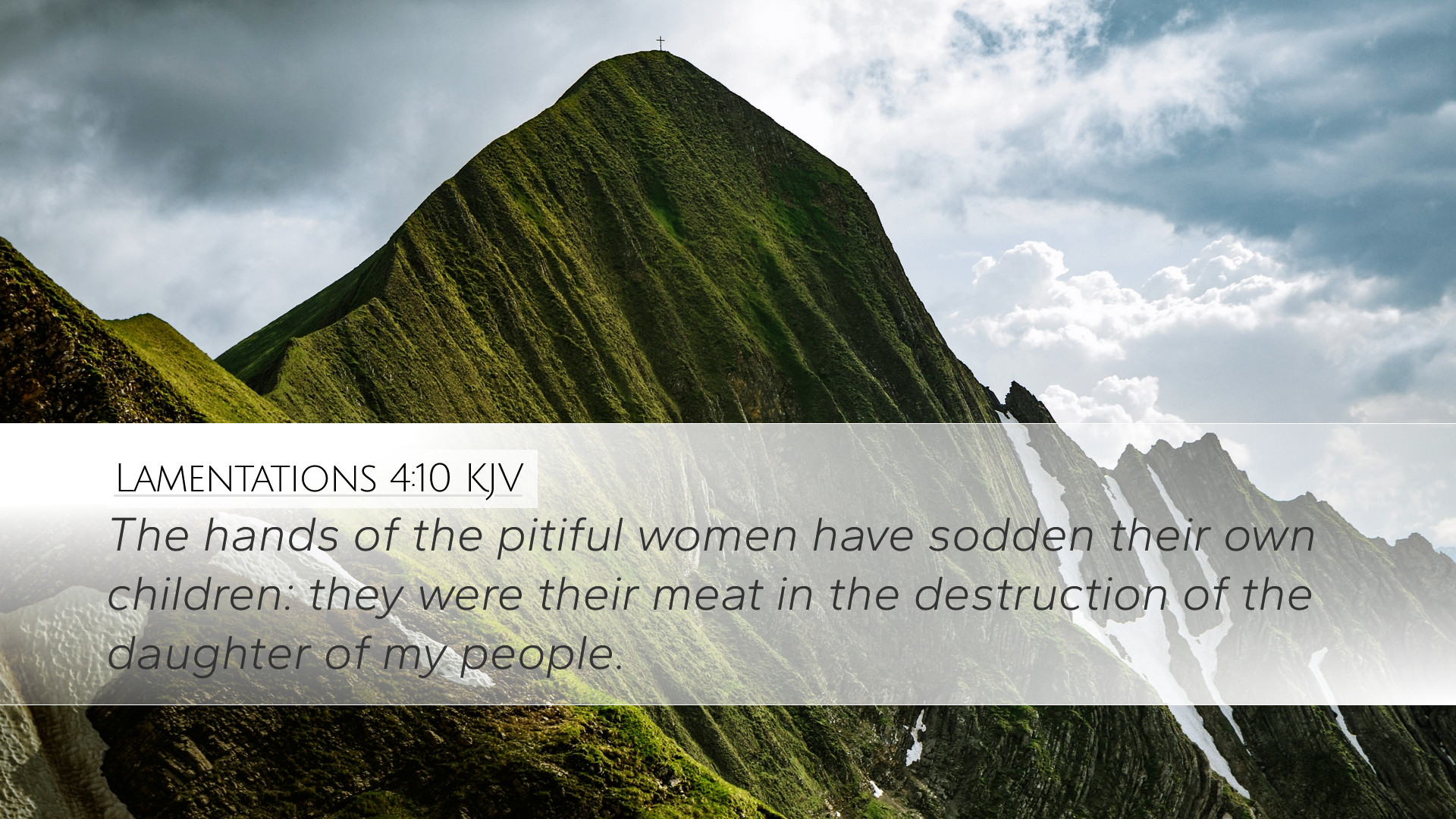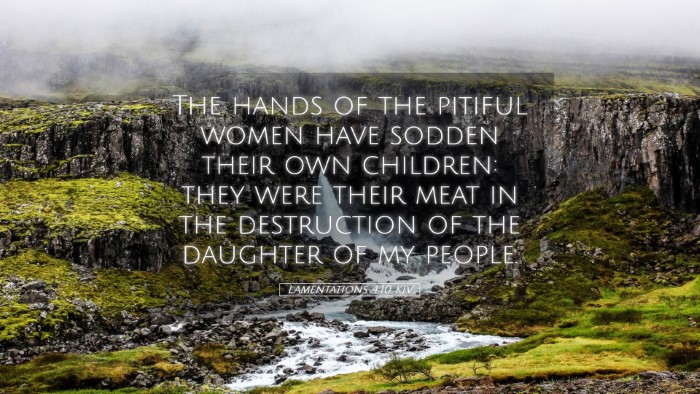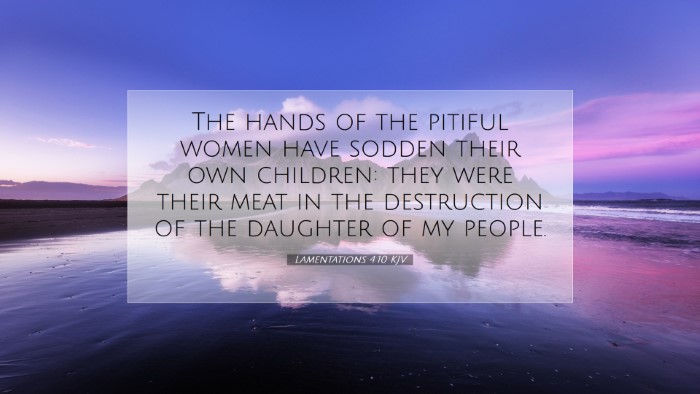Lamentations 4:10 - Commentary Summary
Lamentations 4:10 states: “The hands of the pitiful women have boiled their own children: they were their meat in the destruction of the daughter of my people.” This verse starkly communicates the depths of despair and inhumanity experienced during the Babylonian siege of Jerusalem. The lamentation of the Prophet Jeremiah embodies profound sorrow and tragedy concerning the fate of the people of Israel.
Contextual Background
The Book of Lamentations is a poignant articulation of grief following the fall of Jerusalem. As a post-exilic reflection, it encapsulates the pain of loss, suffering, and the divine judgment perceived by the people. Lamentations 4 dives deeper into the consequences of sin and the severity of the calamity, revealing the horrific situation faced by those left in the besieged city.
Thematic Overview
-
Human Suffering:
This verse presents a disturbing image of mothers resorting to cannibalism, highlighting the extreme suffering and desperation. Matthew Henry remarks that such acts show “the extreme of hunger and misery.” This underscores the depravity that crises can induce, providing insight into the depths of despair experienced by the inhabitants.
-
Divine Justice:
The connection between national sin and divine punishment is evident. Adam Clarke notes that the horrors depicted in this verse were resultant of God’s abandonment of His people, as a consequence of their unfaithfulness. This serves as a somber reminder of the potential outcomes of persistent rebellion against divine law.
-
Parental Sacrifice:
The calamity is not merely physical but psychologically traumatic. Albert Barnes interprets the mothers’ actions as indicative of both profound grief and despair. Their children, once a source of joy, become instruments of survival, reflecting the horrific inversion of natural affection under duress.
Detailed Exegesis
The phrase “the hands of the pitiful women” emphasizes the tenderness and inherent maternal instinct that has been corrupted through suffering. The term "pitiful" denotes a tragic irony, suggesting that those expected to nurture have instead fallen to horrific actions born out of sheer survival instinct. This reversal of roles is profoundly painful, drawing the reader into an understanding of the depths of despair that can cause one to betray the most natural instincts.
The utilization of the word “boiled” further intensifies the grotesque nature of the act. It conveys both the physical destruction and the gradual loss of humanity inherent in such actions. The image evokes horror, forcing readers to confront the reality of human suffering, and pushing them to grapple with the questions of God’s presence in times of despair.
Comparative Analysis
This scene draws parallels with other biblical accounts of judgment and suffering, including the destruction of Sodom and Gomorrah and the famines described in Kings. The shared theme of dire consequences stemming from collective sin reverberates throughout scripture. Each narrative serves to illustrate the gravity of turning away from God and the consequent abandonment felt by the faithful.
Theological Implications
-
Sin and Judgment:
This verse provides insights into the visibility of sin through the lens of individual and national tragedy. It challenges theologians to consider the weight of communal sin and the justice of God as it plays out in human history.
-
Human Nature:
The fragility of human nature is echoed in this lamentation. It compels scholars to examine how external circumstances can catalyze moral collapse or transformation. One must contemplate whether such circumstances may reveal the darker aspects of human nature in times of trial.
-
Hope in Despair:
While Lamentations exposes the raw reality of suffering, it is essential to place these verses within the broader narrative of hope in God’s redemptive plan. As readers, theologians must explore the juxtaposition between despair and hope, noting the necessity of returning to God amidst chaos.
Conclusion
Lamentations 4:10 resonates as a stark reminder of the bleak realities faced during times of distress, calling for reflection on the nature of humanity, the justice of God, and the complexities of suffering. Engaging with this verse encourages a profound understanding of biblical lamentation and the necessity for pastoral care in times of crisis. For pastors, students, theologians, and scholars, this verse not only serves as a historical reflection but also as a catalyst for deeper theological exploration regarding suffering and divine justice.


